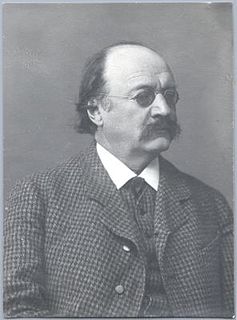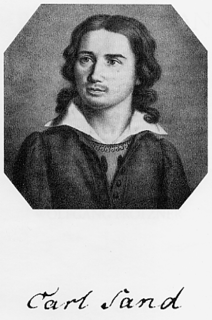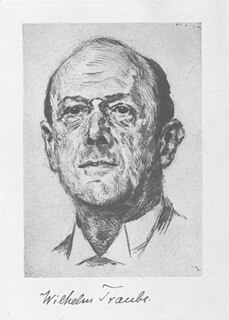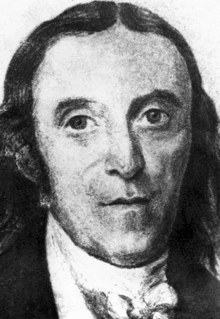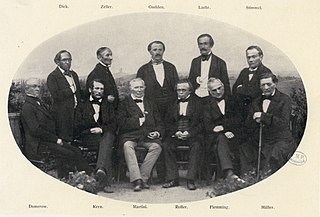Franz Schweigger-Seidel (September 24, 1834 – August 23, 1871) was a German physiologist born in Halle an der Saale. He was the son of chemist Franz Wilhelm Schweigger-Seidel (1795-1838).
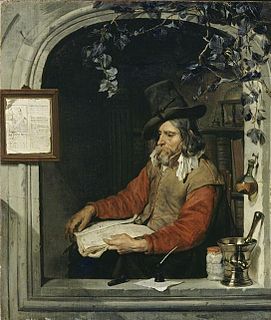
A chemist is a scientist trained in the study of chemistry. Chemists study the composition of matter and its properties. Chemists carefully describe the properties they study in terms of quantities, with detail on the level of molecules and their component atoms. Chemists carefully measure substance proportions, reaction rates, and other chemical properties. The word 'chemist' is also used to address Pharmacists in Commonwealth English.
Franz Wilhelm Schweigger-Seidel ; born as Franz Wilhelm Seidel was a German physician and chemist born in Weißenfels. He was the father of physiologist Franz Schweigger-Seidel (1834–1871).
In 1858 he obtained his doctorate from the University of Halle with a dissertation titled Disquisitiones de callo. Afterwards he served as an assistant to Rudolf Heidenhain (1834-1897 at the physiological institute in Breslau, and from 1865 was an assistant to Carl Ludwig (1816-1895) at the University of Leipzig. In 1866 he received his habilitation, and during the following year became an associate professor at Leipzig.

Rudolf Peter Heinrich Heidenhain was a German physiologist born in Marienwerder, East Prussia. His son, Martin Heidenhain, was a highly regarded anatomist.

Carl Friedrich Wilhelm Ludwig was a German physician and physiologist. His work as both a researcher and teacher had a major influence on the understanding, methods and apparatus used in almost all branches of physiology.

Leipzig is the most populous city in the federal state of Saxony, Germany. With a population of 581,980 inhabitants as of 2017, it is Germany's tenth most populous city. Leipzig is located about 160 kilometres (99 mi) southwest of Berlin at the confluence of the White Elster, Pleiße and Parthe rivers at the southern end of the North German Plain.
His name is associated with "Schweigger-Seidel sheaths", which are spindle-shaped sleeves that cover penicillar arterioles of the spleen.
Schweigger-Seidel sheath is a phagocytic sleeve that is part of a sheathed arteriole of the spleen, and is sometimes referred to as a splenic ellipsoid. It is a spindle-shaped thickening in the walls of the second part of the arterial branches forming the penicilli in the spleen. It is named after German physiologist Franz Schweigger-Seidel (1834-1871).

An arteriole is a small-diameter blood vessel in the microcirculation that extends and branches out from an artery and leads to capillaries.

The spleen is an organ found in virtually all vertebrates. Similar in structure to a large lymph node, it acts primarily as a blood filter. The word spleen comes from Ancient Greek σπλήν (splḗn).
